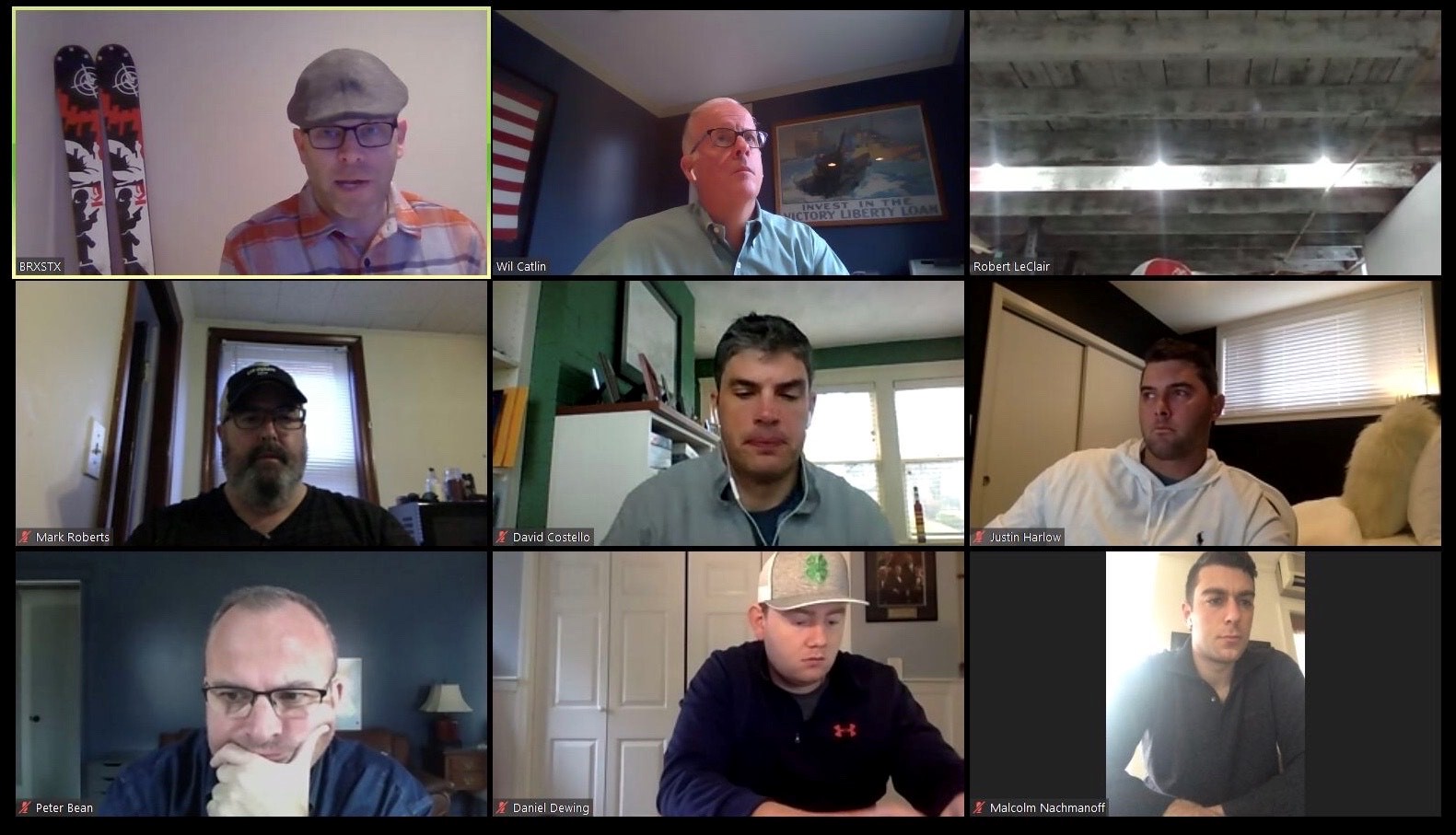A focus on engagement, productivity, and being a value-add player
By Wil Catlin | March 30, 2020

We are in the middle of the largest test of remote work in history. As such, most of the national workforce is going through many “first times” together. Some of us have enjoyed remote access for years, while others are figuring it on the fly. All of us are determining how to be productive in a new environment. Here are some tips to help you navigate this new normal.
Breathe
Many companies, including Boston Realty Advisors, are set up virtually and are open for business. Everyone has had a smartphone since the beginning of time. We answer emails in bed, on the toilet and during vacation. Now is not the time to be a deer caught in the headlights. It is a time to lead, advise and differentiate. Take a breath, keep your business hat on and forge ahead.
Communicate
In all scenarios – good, fun, challenging and daunting – communication is key to professional success. Today and for the next couple of months, we need to lead with empathy and be clear. In a world of an abundance of data, new technology and artificial intelligence – Emotional intelligence is a key skill that will serve you and your clients today and into the future.
Engage, Connect & Care
Speak with your clients. Everyone is in the need of some level of advisory or will simply need an ear. Be there. Ask about family. Discuss your business. Ask about their business . Plan forward and be direct, “How can I help?”
When in question, pick up the phone and ask. Do not overdo it and be authentic. Your authenticity and thoughtfulness will speak volumes and have a lasting impression.
Top of Mind
Be relevant and present. Stay on point and add value. If you’re already active on social media, you have some built in training. Do not share or post just to check the box. That’s the fastest route to being ignored. Share industry news to be relevant. Share what’s working for you during this temporary insanity. Share a list of neighborhood restaurants that are delivering. Be thoughtful and get beyond the echo chamber to stand apart.
Self Starter
So much of our daily fabric has already changed. Try not to change too much more of your workday. Wake up at the same time and get ready for work. Most of you are in a role where being a self-starter is a requirement. It’s time to find or refind that self-starter in you. Be ready to work and lead by example.
Dedicated Space
You will need to define a space to work within your home. This is a space for you to habitually go to and a place that’s understood and respected as your work area. If you’re tight on space, a dedicated chair at the kitchen table will suffice. Tips include – Identify space with natural light; consider a sturdy desk; invest in a comfortable office chair; provide yourself with a good mouse, keyboard, and headset; and pay for the strongest internet connection possible. Perhaps, now is the time to invest in that stand-up desk you’ve been talking about.
Munchies
Try not eating at your home workspace. It’s both a distraction and a bad habit. Think about it. Your kitchen is just a few steps away. When was the last time you sat down with your spouse or kids to have lunch? You’re home. Take the time to sit down with your kids – or not – and then get back to work. Your dedicated space to work is a place to be productive.
Attire
Be comfortable and don’t be lazy. If it helps putting on a button-down shirt every day, do it. If you’re more comfortable wearing your Sunday’s best, do that. You are your best judge. Be ready to work.
Exercise
Staying active will keep you fresh and sharp. When working from home, try not to get trapped in your workspace for long periods of time. It’s important to walk away from your computer. For example, a 10-minute walk is powerful. Do not look for distractions. If you have 10-minutes between calls, instead of mindless time online, do a load of laundry or wash the dishes – and then get back to work.
Brainstorm
Lack of time and not enough bandwidth are traditionally our worst friends. How many times have you said, “Great idea, but I don’t have the time”? Refresh those ideas. What will our new reality look like? Use this time to prepare. Those that are present and proactive will come out of this pandemic a step ahead.
Work/Life Balance
Welcome home. All chores and honey-do lists no longer have to be left exclusively for the weekend. Break your day up to help out. Accomplish a task at home and get back to work. When you effectively juggle work and life, you will find a new sense of accomplishment and discover new levels of productivity. Stay focused and on task.
A New Tomorrow
We are living in extraordinary times. Technology will bring new opportunities to our work life, but it will not replace the built environment. The office will always be a necessity. The questions are – what will it look like and what will each company be solving for.
Be Ready
When the economy normalizes, companies still value having people together in a physical space. Don’t let today’s challenges or the newness of working from home become a distraction. If you’re stuck, you will not be ready for when we get the green light.








 By
By 